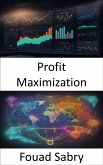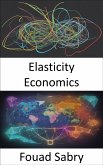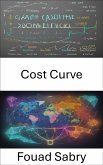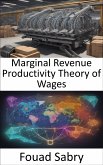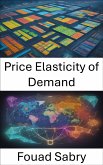What is Minimum Efficient Scale
In the context of industrial organization, the effective scale of production, also known as the minimum efficient scale (MES), refers to the lowest point at which a plant is capable of producing in such a way that its long-term average costs are minimized. Additionally, it is the point at which the company is able to acquire the economies of scale that are necessary for it to effectively compete within the market sector.
How you will benefit
(I) Insights, and validations about the following topics:
Chapter 1: Minimum efficient scale
Chapter 2: Economies of scale
Chapter 3: Monopoly
Chapter 4: Perfect competition
Chapter 5: Profit maximization
Chapter 6: Price elasticity of demand
Chapter 7: Economies of scope
Chapter 8: Marginal cost
Chapter 9: Average cost
Chapter 10: Marginal product
Chapter 11: Diminishing returns
Chapter 12: Returns to scale
Chapter 13: Marginal revenue
Chapter 14: Marginal revenue productivity theory of wages
Chapter 15: Lerner index
Chapter 16: Cost curve
Chapter 17: Supply (economics)
Chapter 18: Marginal product of labor
Chapter 19: Socially optimal firm size
Chapter 20: Robinson Crusoe economy
Chapter 21: Monopoly price
(II) Answering the public top questions about minimum efficient scale.
(III) Real world examples for the usage of minimum efficient scale in many fields.
Who this book is for
Professionals, undergraduate and graduate students, enthusiasts, hobbyists, and those who want to go beyond basic knowledge or information for any kind of Minimum Efficient Scale.
In the context of industrial organization, the effective scale of production, also known as the minimum efficient scale (MES), refers to the lowest point at which a plant is capable of producing in such a way that its long-term average costs are minimized. Additionally, it is the point at which the company is able to acquire the economies of scale that are necessary for it to effectively compete within the market sector.
How you will benefit
(I) Insights, and validations about the following topics:
Chapter 1: Minimum efficient scale
Chapter 2: Economies of scale
Chapter 3: Monopoly
Chapter 4: Perfect competition
Chapter 5: Profit maximization
Chapter 6: Price elasticity of demand
Chapter 7: Economies of scope
Chapter 8: Marginal cost
Chapter 9: Average cost
Chapter 10: Marginal product
Chapter 11: Diminishing returns
Chapter 12: Returns to scale
Chapter 13: Marginal revenue
Chapter 14: Marginal revenue productivity theory of wages
Chapter 15: Lerner index
Chapter 16: Cost curve
Chapter 17: Supply (economics)
Chapter 18: Marginal product of labor
Chapter 19: Socially optimal firm size
Chapter 20: Robinson Crusoe economy
Chapter 21: Monopoly price
(II) Answering the public top questions about minimum efficient scale.
(III) Real world examples for the usage of minimum efficient scale in many fields.
Who this book is for
Professionals, undergraduate and graduate students, enthusiasts, hobbyists, and those who want to go beyond basic knowledge or information for any kind of Minimum Efficient Scale.
Dieser Download kann aus rechtlichen Gründen nur mit Rechnungsadresse in A, B, BG, CY, CZ, D, DK, EW, E, FIN, F, GR, H, IRL, I, LT, L, LR, M, NL, PL, P, R, S, SLO, SK ausgeliefert werden.




